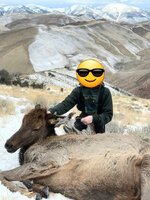I will risk repeating some basic stuff, you may already know it, but lots of people mix it up.
Diabetes (DM in medical shorthanded) makes your blood sugar high. In the case of type 1, this is because you do not produce adequate insulin.
Insulin is a storage and building hormone, it lowers blood sugar by telling your cells to take that sugar in and store it. Mismatching the insulin dose to your body's needs is what causes low blood sugar (too much insulin), or diabetic keto acidosis (too little insulin for too long).
My understanding (I don't manage DM in my day job, you should discuss this with a diabetic educator) is that exercise increases consumption of glucose, but not the need for insulin, so insulin dosing needs to be adjusted down or adjusted carb intake up to avoid hypoglycemia (low blood sugar). Interestlingly, in other times of stress, such as an illness, insulin needs tend to be higher and DKA is the concern.
Monitoring is the key, especially when learning or doing something new.
Carry glucose tabs in case your sugar drops. Simple sugar is what you want to bring a low blood glucose up as they absorbed quickly, hard candy works as do drinks like Gatorade and tailwind if you are getting enough sugar, but given the volume of liquid needed for an adequate dose, I would go with something other than a drink (I've not calculated the dose, just making a guess).
Once your glucose is up, you then want complex carbs, protein, and fat to hold it up over time without a giant spike. This is things like peanut butter crackers, protein bars, ice cream, a freeze dried meal, Etc.
Ask if your insurance will cove continuous glucose monitoring, even if it will not, it might be worth paying out of pocket during time you are in the field while you learn how your body responds.
Good luck, with good management there is little reason you cannot lead a nearly normal life (I say nearly because monitoring/meds, not because you need to quit doing things).
On the preventative side, consistent exercise goes a long way, keeping you hemoglobin A1c down (this number is basically a 90 day rolling average of your blood glucose), and keeping your cholesterol down go a long way in allowing a long and healthy life.
You can adjust insulin to manage a crap dietary choice (which is what a none diabetics body does), but enough poor diet choices will lead to poorer outcomes over time, similar to the rest of use, but probably a touch worse in the case of DM.
I wonder if
@V2Pnutrition does work with DM, given the medication side of thigs, I honestly don't know how much of DM type I falls in a nutritionists wheelhouse. If you have the resources, getting educated early is well worth the investment, and your needs may differ from those most DM educators deal with.
Good luck.


